Meet the new Khoury College faculty for 2024–25
Author: Madelaine Millar
Date: 09.04.24
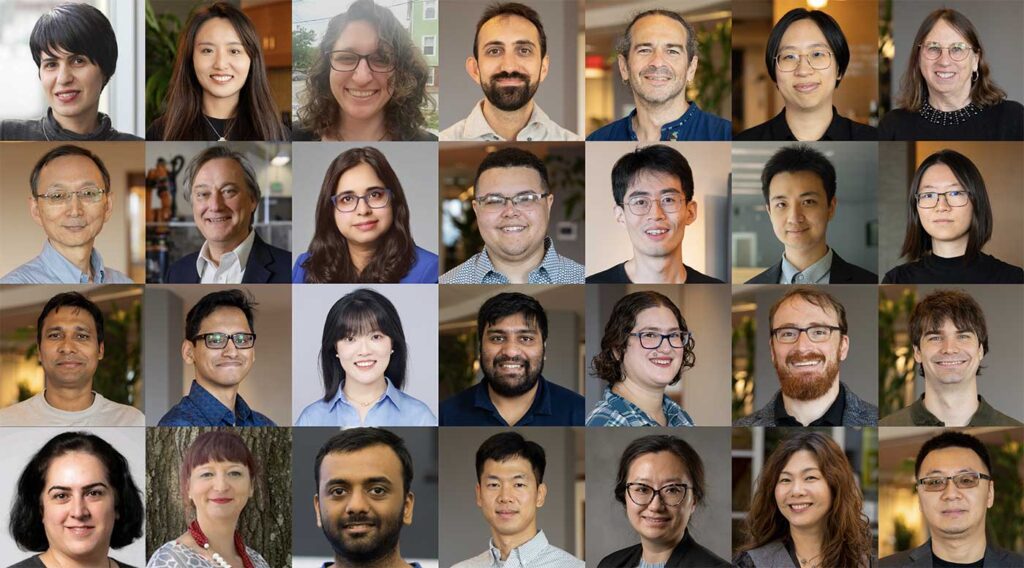
Khoury College welcomed more than two dozen new faculty hires this year, from security specialists to online communications experts to computer graphics mavens. As they begin their research and teaching across six Northeastern campuses and online, let’s take a moment to meet them.
Click a faculty member’s name to jump to their section, or simply read on:
Neda Changizi, clinical instructor
Starting fall 2024 in Vancouver
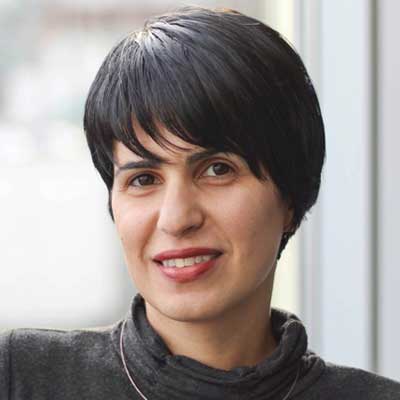
Mindfulness is a major motivating force in Neda Changizi’s life and career. She is the founder, designer, and builder of an app to support Farsi-speaking users in their mindfulness meditation practices. She also practices mindfulness meditation to help bring patience and compassion to her classroom, where she has taught courses in web and mobile application development as a part-time lecturer with Khoury College in Vancouver for the past two years. Changizi cares deeply about supporting her students as they master computer science and relishes the moments of pride and recognition when her students figure out how to apply a technique from her class to the problem at hand.
“Crane” He Chen, assistant teaching professor
Starting fall 2024 in Silicon Valley
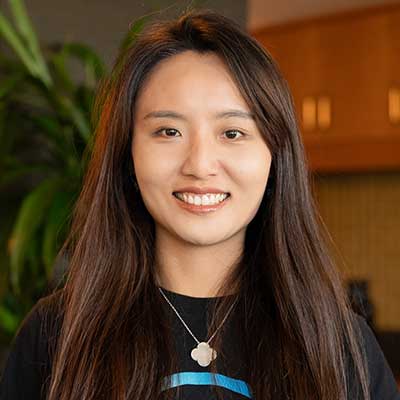
“Crane” He Chen loves computer graphics and strives to understand the artistic roots of computer graphics in Hollywood movie production. She has applied this passion at major computer arts organizations like Industrial Light & Magic (a Lucasfilm studio under Disney) and Adobe, as well as in her work as a graduate student researcher in computer graphics and 3D computer vision at Johns Hopkins University. Chen deeply enjoys coding and problem solving; in her classes on computer graphics, she aims to help her students develop an intuition about the subject, as well as impart more specific and traditional knowledge.
Molly Domino, assistant teaching professor
Starting fall 2024 at the Roux Institute
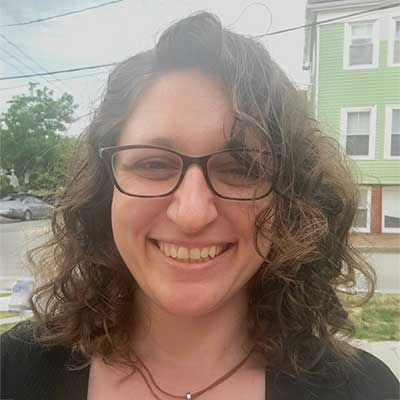
Molly Domino understands how difficult it can be to learn to program, which is why her doctoral studies at Virginia Tech focused on improving educational experiences for novice programmers. She began studying computer science education after five years as a software developer because she wanted to help new students gain an understanding and passion for the field. When she joins Khoury College, she will help shape graduate students’ journeys as the instructor for computer science foundations and object-oriented design courses.
Joshua Gancher, assistant professor
Starting fall 2024 in Boston
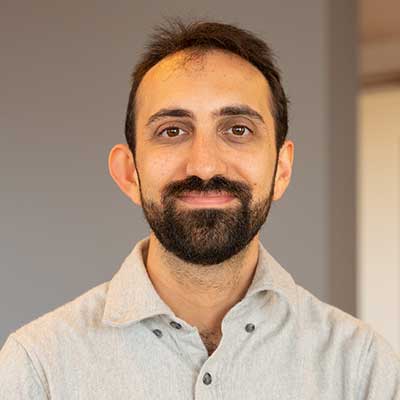
As a scholar of cryptography, formal methods, and mechanized proofs, Joshua Gancher likes when things can be proved to be correct. After completing a doctorate focused on verified cryptographic security, he spent three years as a postdoctoral fellow at Carnegie Mellon University working to understand how the cryptographic software that underpins our daily lives can be mathematically guaranteed to be secure. Now equipped with a toolkit of formal methods expertise, Gancher is excited to join the Khoury research community and apply his precise methods to other disciplines like networking, probabilistic programming, and distributed systems. He is also looking forward to connecting with and mentoring his students as they explore the world of computer science research.
Sandy Ganzell, teaching professor
Starting fall 2024 at the Roux Institute
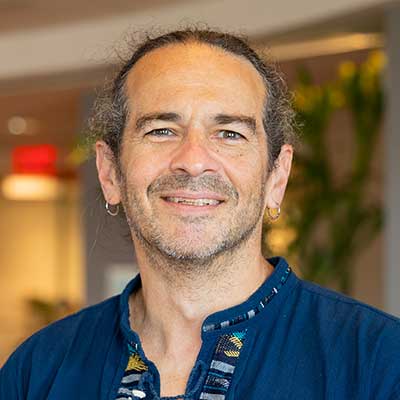
Sandy Ganzell is a lifelong educator who won the Homer L. Dodge Award for Excellence in Teaching in his previous role as a professor of mathematics and computer science at St. Mary’s College of Maryland. In addition to his nearly 20 years at St. Mary’s, he has also taught mathematics and computer science at the University of The Gambia, Pomona College, and Rice University. As he joins the Roux Institute, Ganzell looks forward to working with Align students in particular and helping them transition into computer science.
Chris Geeng, assistant teaching professor
Starting fall 2024 in Seattle
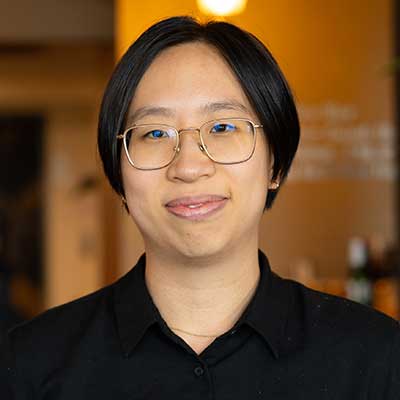
Computer system design has enormous power to support or disenfranchise people, a reality that motivates Chris Geeng’s work as a researcher and an instructor. When teaching courses on human–computer interaction and object-oriented programming, they focus on how both they and their students can minimize harm. When researching privacy practices and the concerns of marginalized communities, they use intersectionality as an analytical lens through which to craft design and policy recommendations for more equitable technology. Geeng joins Khoury College following two years as a postdoctoral scholar at New York University, and they are eager to tackle a role that involves more teaching.
Elizabeth (Beth) Hawthorne, professor of the practice and cybersecurity graduate program director
Starting fall 2024 in Arlington
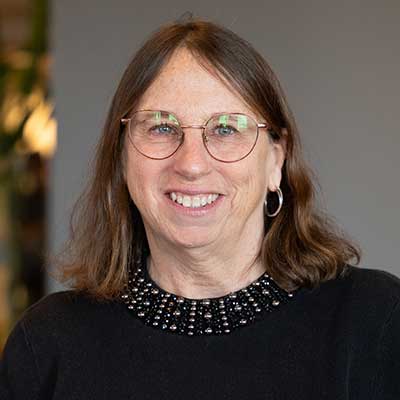
Beth Hawthorne loves cybersecurity education. Over the course of her career, she has served as the founding director and curriculum developer of the Rider University cybersecurity graduate program and as the chair of the ACM Education Board, where she promoted computing education at all collegiate levels. Drawn to Khoury College by the chance to collaborate with top-notch computer science and cybersecurity colleagues in the Align network, Hawthorne is looking forward to further building out the cybersecurity graduate program at the Arlington campus. She is also excited to get in the classroom with her students, where she teaches courses in cybersecurity and digital forensics.
READ: People of ACM: Elizabeth Hawthorne
Yifan Hu, professor of the practice
Starting fall 2024 in Seattle
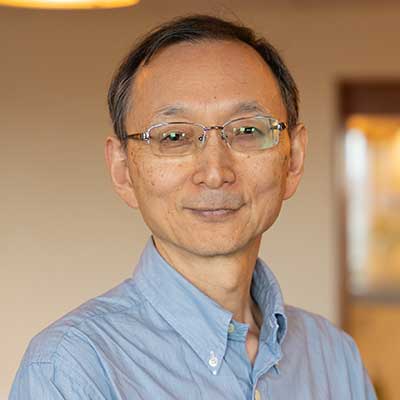
Over his three decades in industry research, Yifan Hu has had plenty of time to develop a nuanced understanding of his research topics. While working for such organizations as Amazon, Yahoo Research, AT&T Labs, and Wolfram Research, Hu published more than 80 papers on information visualization, AI, machine learning, and natural language processing, and their practical applications to real-world problems. As he joins Khoury College, Hu is eager to approach his chosen domains with a fresh and interdisciplinary perspective, and find out whether his most successful methods can be applied to other disciplines in useful and interesting ways.
Seth Hutchinson, professor
Starting spring 2025 in Boston
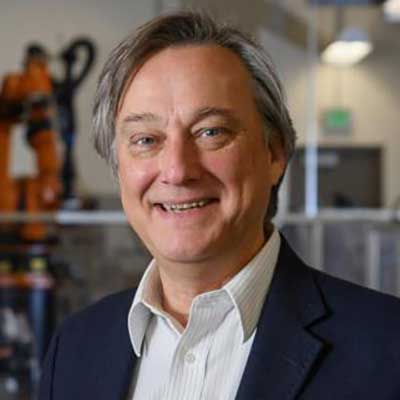
Throughout his career, Seth Hutchinson has worked to understand how robotics sense and operate in dynamic environments, how they coexist with each other, and what problems arise in automatic control. To that end, he and his research group have examined issues of vision-based control, planning under uncertainty, pursuit evasion, path planning, and computer vision. He comes to Khoury College after serving as the KUKA Chair for Robotics in Georgia Tech’s School of Interactive Computing, as well as the executive director of the university’s Institute for Robotics and Intelligent Machines.
Hazra Imran, associate teaching professor
Starting fall 2024 in Vancouver
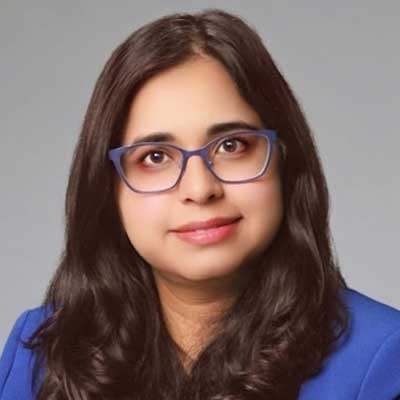
Hazra Imran works to blend technology and psychology into impactful learning experiences that cater to students of all backgrounds. She believes in games’ unique ability to motivate students, promote deep engagement, and enable knowledge retention, and she is particularly interested in how AI-powered metrics can integrate with large language models to enhance social and emotional learning. She’ll apply those educational philosophies in Vancouver, where she teaches courses in foundational computer science and web development and conducts further research into technologically supported learning.
Carter Ithier, clinical instructor
Starting summer 2024 in Boston
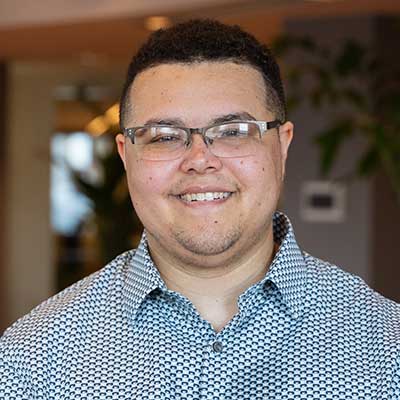
Carter Ithier can’t merely imagine what his discrete math students are going through; he can remember it. Ithier received his master’s degree in computer science through Khoury College’s Align program, where he learned about discrete math, AI, and machine learning after doing an undergraduate degree in mechanical engineering. He spent three years applying those skills in industry with Boston-based robotics startup Saturday Robotics before returning to Khoury College as a clinical instructor, drawn back by the school’s dedication to computer science education for underrepresented groups. Ithier is deeply committed to involving such groups in STEM and has worked with nonprofits such as FIRST Robotics, The Breakthrough Collaborative, and AmeriCorps to shrink achievement and gender gaps in computer science.
Wengong Jin, assistant professor
Starting fall 2024 in Boston
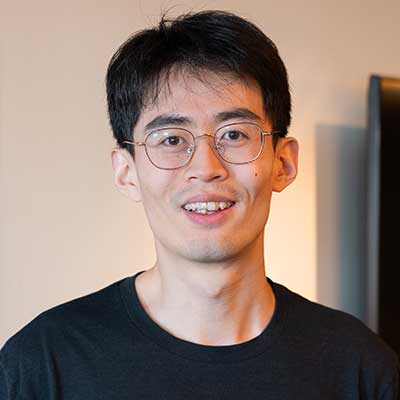
Wengong Jin researches the development of geometric deep learning and generative AI models for use in drug discovery. After earning his computer science doctorate from MIT, Jin received the BroadIgnite award and spent three years as a postdoctoral researcher with the Broad Institute of MIT and Harvard. There, he worked to develop a deep-learning model that could predict many antibody–antigen binding relationships at once instead of evaluating interactions one-by-one or in small groups as current methods allow. His work has been published in journals including ICML, NeurIPS, ICLR, Nature, Science, Cell, and PNAS, and covered by such outlets as the Guardian, BBC News, CBS Boston, and the Financial Times.
Zhengzhong Jin, assistant professor
Starting fall 2024 in Boston
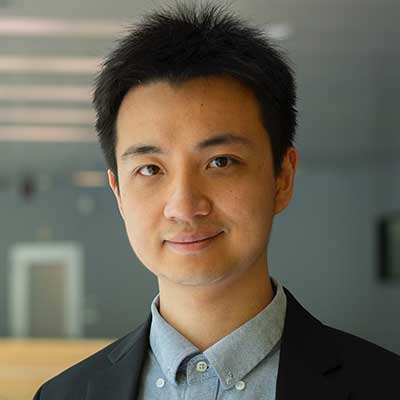
Ever since he was introduced to theoretical computer science during his undergraduate days, Zhengzhong Jin has been passionate about the challenging and exciting world of cryptography. In particular, he is interested in developing a proof system to enable clients to delegate heavy computation to an untrusted server while still ensuring that the computation is being done correctly. He sees a broad range of applications for his work in areas like blockchain and cryptocurrency, and he is curious about cryptography’s potential intersections with other domains like quantum computing and machine learning research.
Tianshi Li, assistant professor
Starting fall 2024 in Boston
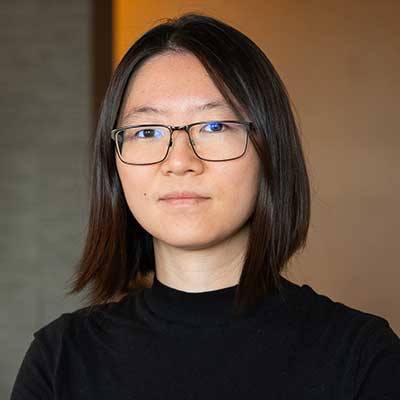
Tianshi Li works to make sure that developers can create apps that still meet privacy, security, accessibility, and fairness requirements, even without specializing in those subjects. She has pursued that passion as a postdoctoral scholar at UC Berkeley and in four separate intern positions with Google. Now, at Khoury College, she is excited to develop practical techniques to use technology to navigate pressing social issues, and hopes to eventually direct her own lab.
Prashant Pandey, assistant professor
Starting spring 2025 in Boston
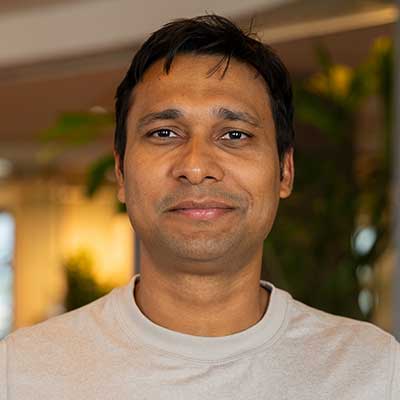
Our ability to generate, acquire, and store data has grown exponentially over the past decade, and Prashant Pandey wants to make the most of that fact. Pandey studies how to build scalable data systems with strong theoretical guarantees, then employ them to democratize next-generation data analyses. He’s committed to interdisciplinary work and has built data systems for everything from computational biology and cybersecurity to stream processing and storage systems. When he joins Khoury College, Pandey looks forward to helping his students understand the theoretical and practical aspects of large-scale data management.
Abir Saha, assistant teaching professor
Starting fall 2024 in Boston
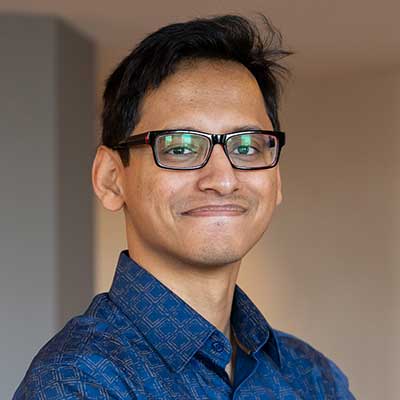
Abir Saha is passionate about accessible human–computer interactions, and his research focuses on designing tools to support disabled people doing skilled work using computers. He makes a priority of working with the communities he studies to develop meaningful insight into their technology use and needs; in his recently completed doctoral studies in technology and social behavior at Northwestern University, that meant working with blind and visually impaired users to improve audio production and content creation. His paper on the topic, “Understanding Audio Production Practices of People with Vision Impairments,” received a best paper nomination at the ASSETS 2020 conference.
Weiyan Shi, assistant professor
Starting fall 2024 in Boston, jointly appointed with the College of Engineering
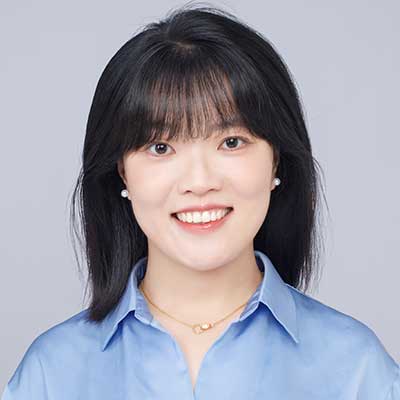
Weiyan Shi makes computers talk — really, really well. As a research intern at Meta AI Research, she developed the negotiation dialogue agent that allowed the AI Cicero to play the game Diplomacy at a human level, an accomplishment that was covered by the New York Times, the Washington Post, and Forbes. She was also recognized as a Rising Star in Machine Learning by the University of Maryland, spent a year as postdoctoral researcher in Stanford’s Natural Language Processing Group, and was nominated for a best paper award in 2019 for her work on personalized persuasive dialogue systems. She is particularly interested in how NLP and AI systems can handle complex dialogues like persuasion, negotiation, and recommendation, and looks forward to collaborating with her Khoury College colleagues to ensure those AI models are secure, private, equitable, and expert.
Mohit Singhal, assistant teaching professor
Starting fall 2024 in Boston
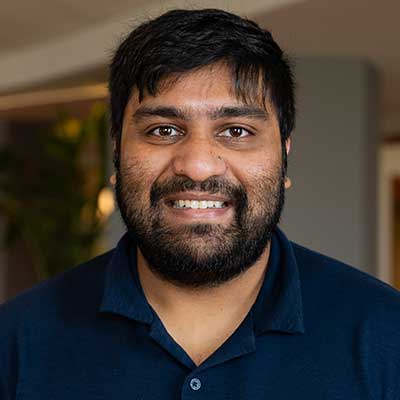
Mohit Singhal is fascinated by the way small changes in content moderation on social media platforms can have huge — and sometimes catastrophic — social ripple effects. His research into the challenges and gaps in platform governance has been cited in cases before the US Supreme Court and the European Union. Upon joining Khoury College, Singhal is excited to contribute to the world around him and honor his own instructors by educating the next generation of computer scientists.
Rose Sloan, assistant teaching professor
Starting fall 2024 in Boston
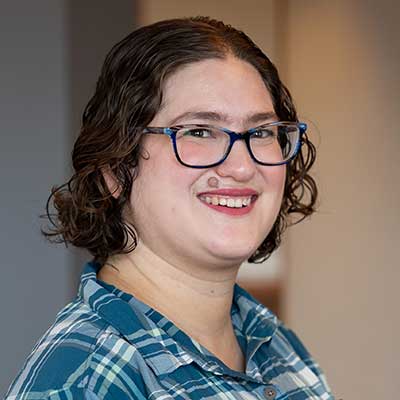
Text-to-speech computer voices aren’t exactly known for their lilting rhythms and natural-sounding syllabic stresses; to Rose Sloan, that’s an exciting area for improvement. During her doctoral studies at Columbia University, Sloan worked with Julia Hirschberg studying prosody prediction for text-to-speech applications. She also spent two years as a visiting assistant professor of computer science at Bard College, where she pursued the same questions. In her free time, Sloan enjoys crafting crossword puzzles.
David Stein, assistant professor
Starting fall 2024 in Boston, jointly appointed with the School of Law
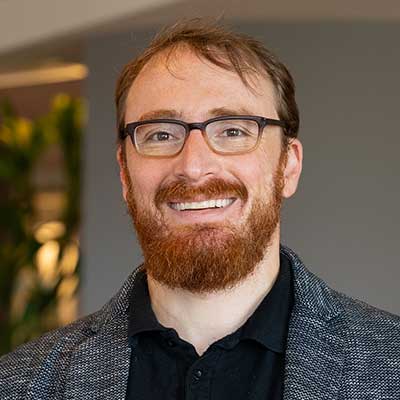
David Stein studies how law and technology influence each other. On the tech side, he spent the better part of a decade in industry working with groups like Sidewalk Labs and Dropbox on questions of data analytics, security, and privacy. On the legal side, he worked as a research scholar at the Guarini Institute for Global Law and Tech and as a fellow at the Information Law Institute. Now Stein is eager to explore the interdisciplinary intersections of his dual passions, in both the classroom and the research lab.
Jesse Stern, assistant teaching professor
Starting online in fall 2024
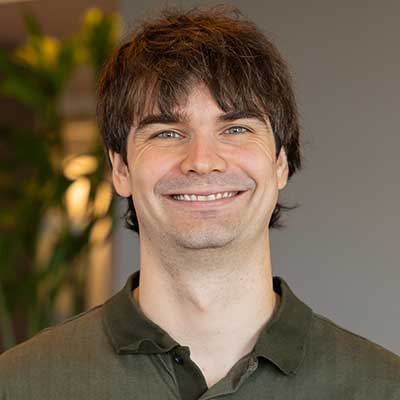
Jesse Stern believes that discrete mathematics and algorithms aren’t just interesting topics — they’re also useful concepts and ways of thinking that his students can use to tackle a range of problems. He likes puzzles and games, and he enjoys how mathematical and algorithmic methods help him and his students discover efficient, different solutions to the same problem. He pursued that passion at the University of Chicago, where he studied theoretical cryptography, extremal combinatorics, and computational complexity. At Khoury College, he is eager to impart complex theories that will help his students fully grasp computer science.
Maryam Tanha, assistant teaching professor
Starting spring 2025 in Vancouver
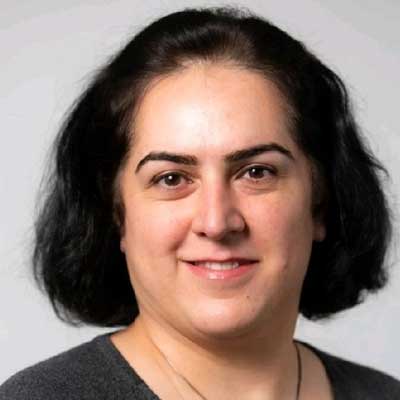
The popularity and accessibility of Android applications makes them prime targets for malware, so Maryam Tanha is using machine learning to detect that malware and improve mobile security. After graduating with her doctorate from the University of Victoria, she joined the British Columbia Institute of Technology, where she received a grant to research Android malware detection and to mentor undergraduate students also interested in that area. Tanha began lecturing with Khoury College part time in 2023, and — excited by the opportunity to engage with master’s students — she will join Khoury College full-time in the spring.
Wendy Truran, associate teaching professor of technical and professional communications
Starting spring 2025 in Boston
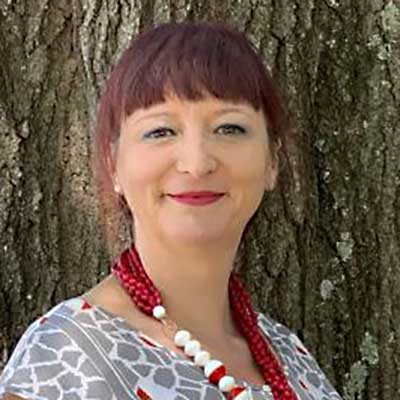
Whether through teaching or learning, Wendy Truran enjoys crafting opportunities for students to challenge themselves, fulfill their potential, and learn concepts that are readily applicable beyond their classroom studies. Before joining Khoury College, she was a postdoctoral fellow at Georgia Tech, where she also worked as a visiting lecturer in the university’s writing and communications program. Truran, who boasts a background in English literature, has also worked as a publishing editor in the United Kingdom, an English teacher in Japan, co-editor-in-chief at Capacious: Journal for Emerging Affect Inquiry, and series editor for Imbricate! Press.
Akshar Varma, assistant teaching professor
Starting fall 2024 in Boston
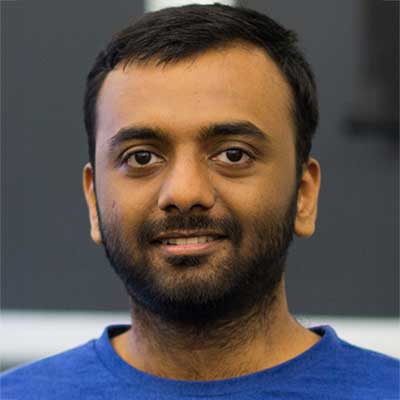
Akshar Varma is an established Husky, having recently completed his doctorate in theoretical computer science under Ravi Sundaram. He is interested in theoretical problems like parameters and overparameterization that relate to machine learning and graph algorithms, and in how theory and practice influence and improve one another. He also has a soft spot for mathematical and computational curios, and posts explainers to his personal website of things like the Master Theorem and why computers think 0.1 + 0.2 = 0.30000000000000004.
Huihui Wang, teaching professor and director of computing programs in Arlington
Starting fall 2024 in Arlington
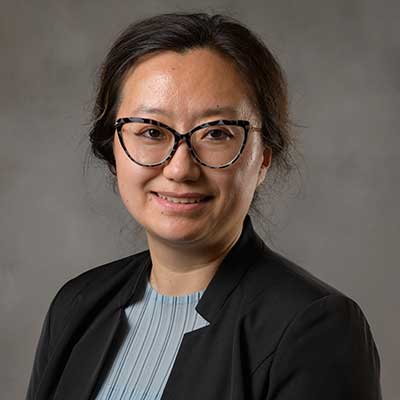
Huihui Wang wears many hats. As an instructor, she teaches computing foundations courses and works to create pathways for students without undergraduate CS degrees to thrive at the graduate level. As an administrator, she recruits and supervises faculty for master’s programs in Arlington. As a researcher, she examines challenges and opportunities for computing education in the third wave of artificial intelligence. As a human being, she enjoys tennis and dancing.
Ilmi Yoon, teaching professor and director of computing programs in Silicon Valley
Starting fall 2024 in Silicon Valley
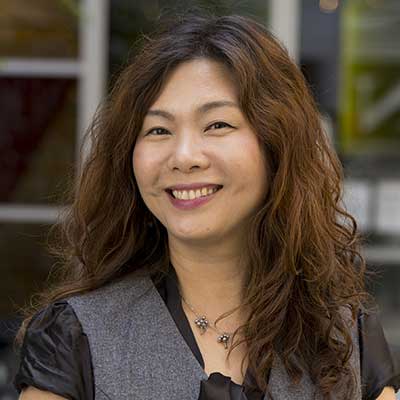
After 24 years as a professor at San Francisco State University, Ilmi Yoon joins Khoury College to explore how different educational options like the Align program can impact more students. She loves supporting her students from the beginning of their computing journeys and watching them grow beyond her expectations. She is particularly interested in engaging underrepresented and marginalized people in computing and computing education, and researches human-centered AI, video accessibility, and socially responsible computing through that lens.
Deahan Yu, assistant teaching professor
Starting fall 2024 in Boston
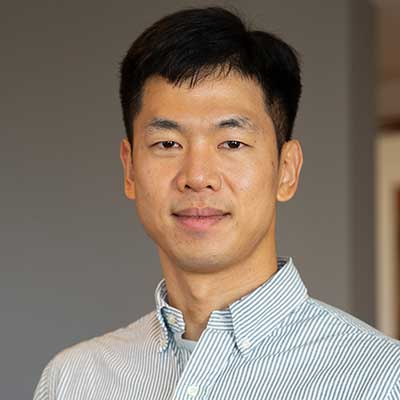
It’s important to Deahan Yu that his students have not only the theoretical foundations to create things with computers, but also the ethical education to understand why they should or shouldn’t make those things, and what impacts their choices can have. Given that he teaches courses in machine learning and data mining — tools with diverse and powerful applications from health care to finance to business — he aims to teach students to make thoughtful choices as they design those tools. As he joins Khoury College, Yu looks forward to supporting, advising, and empowering his students to become considerate computing leaders.
Ziming Zhao, associate professor
Starting fall 2024 in Boston
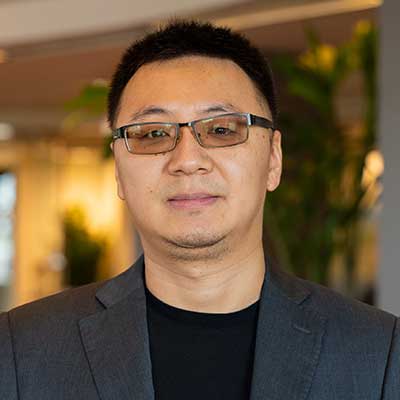
Ziming Zhao’s passion for systems and software security, network and web security, and human-centric security is motivated by one simple truism: Hacking is fun. From that fact, he has grown a broad career focused on practical ways to secure systems, during which he has published more than 70 papers studded with honorifics, including best and distinguished paper awards, a Test of Time award from ACM SACMAT, and an NSF Career award. He has also been deeply involved in Capture the Flag (CTF) cybersecurity competitions, a sport with an excellent track record at Khoury College. Zhao is excited to teach a software security course designed around hands-on CTF competitions.
The Khoury Network: Be in the know
Subscribe now to our monthly newsletter for the latest stories and achievements of our students and faculty